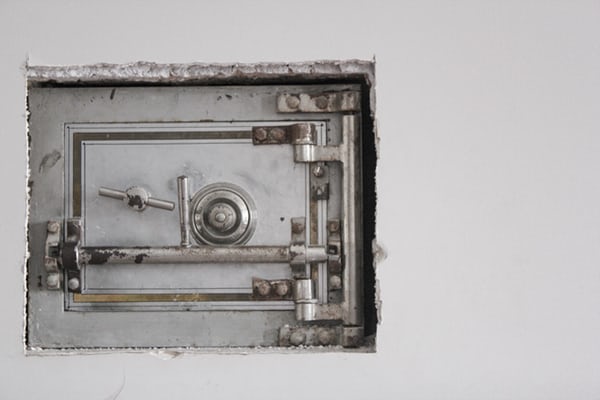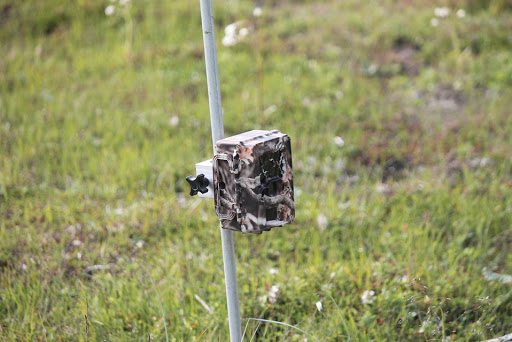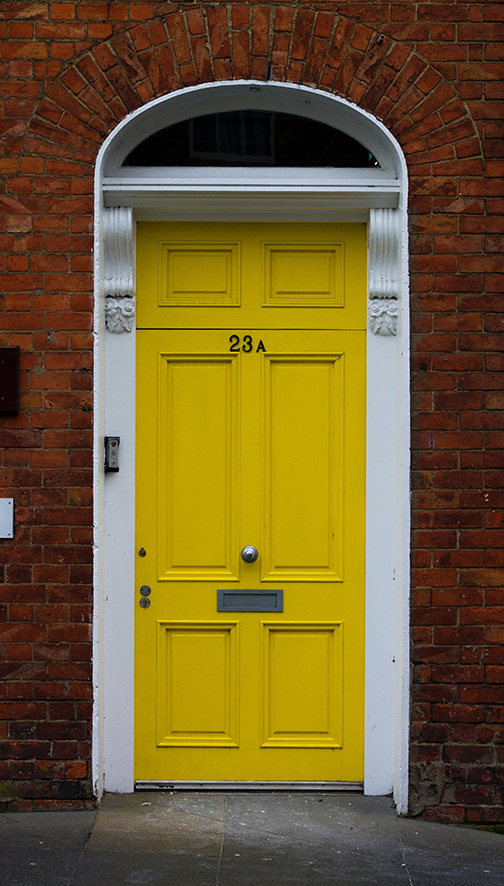Best Wifi Security and Cellular Security Devices
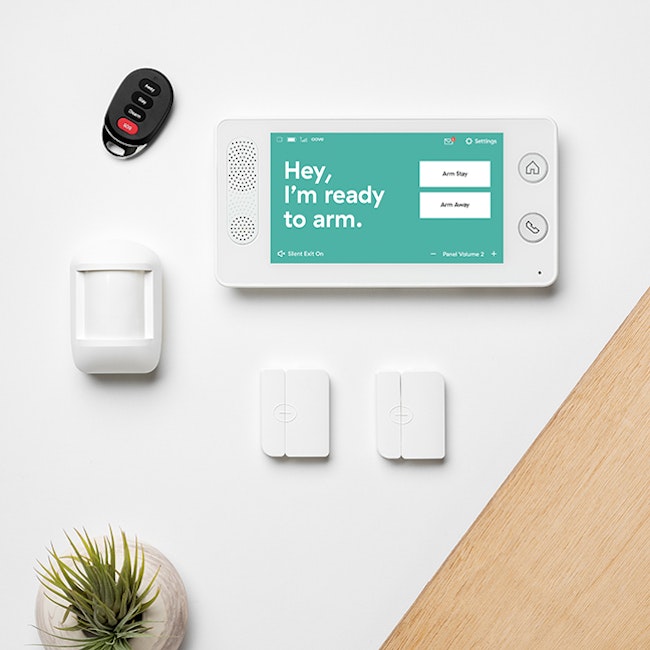
Many homeowners living in the United States are switching to wifi security and cellular security. The two types of security are vastly different, though they also have many similarities. Keep reading to learn more about wifi security, cellular security, and wired security.
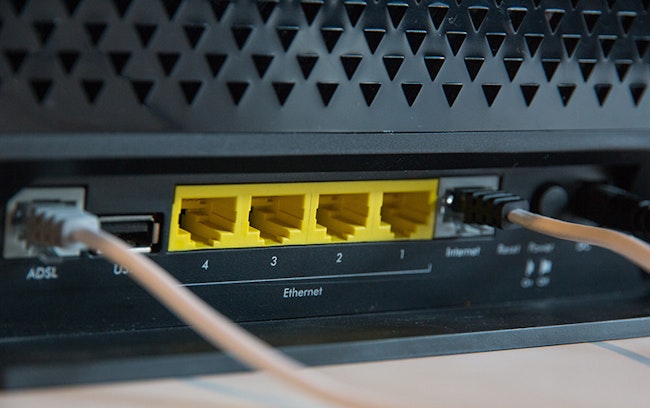
What is Wifi Security?
Answer: Wifi security connects to the house's wifi to create a web of connected security devices without wiring.
A wifi security system is a type of home security that relies on the home's wifi network to connect to the monitoring center. This home security system is often DIY, meaning that the homeowner or renter can install the system contact-free and without a professional installation team. The installation of a wifi system will vary depending on the wifi system and the alarm company. Here is the general installation process for a wireless wifi alarm system:
1. Get a Wifi Card
To connect a wifi system to a wifi network, you will need a wifi card. Most systems that are advertised as wifi alarm systems will come with a pre-existing wifi card to make the installation process easier on the customer. However, a low-grade alarm system may require that the homeowner buy a wifi card for the system.
2. Install the Wifi Card
Open up the main control panel and insert the wifi card. Most alarm systems will provide you with specific instructions to show where and how the wifi card needs to be installed. When installing the wifi card, the power to the system should be turned off completely. Leaving the system on while installing the card could lead to further complications. In some situations, this could fry the wifi card or cause the system not to recognize the card's installation. To turn off the alarm system, simply disconnect it from the power source. If the system has batteries, remove the batteries. If it is plugged into the wall, unplug it. Remember that if your alarm system comes with a wifi card, you can skip this step.
3. Connect to Wifi
The next step is to connect to the wifi in the house. For this step, you will need the network password. In most cases, a screen will appear on the device, asking which network the device should connect to. You can choose your home network and then enter the network password. This simple process should connect the main alarm panel to the home network. In turn, each of the wireless devices should pair with the base station.
4. Connect to Your Monitoring Service
Once the wifi network is connected to the alarm system, follow the alarm company's instructions to pair the device with the monitoring service. These steps vary company to company, and you will need direct contact with your home security company to complete this step of the installation process. Once everything is connected, double-check every wifi security camera, wireless motion sensor, and all other devices in your wireless alarm system.
Wifi security is fairly common and a great choice for some homes. However, every home is different and has different requirements. To learn whether a wireless wifi security system is for you, we've created a list of pros and cons.
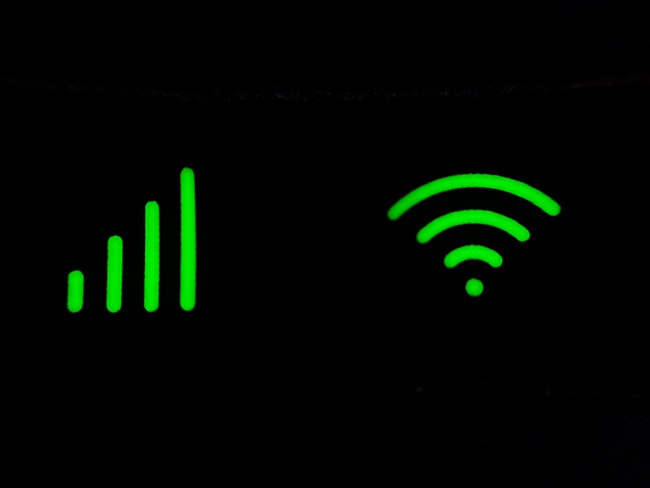
The Pros of a Wireless Wifi Security System
Easy Installation A wireless wifi system is simple to install. The entire installation can be done without hiring a professional installation team. This makes the process faster and more efficient. Because the devices are wireless, the homeowner doesn't have to worry about rerouting the existing wiring in their home.
Contact-Free Delivery Most wifi alarm systems can be shipped to your front door. This helps at-risk homes to maintain distance from delivery personnel. When the package arrives on your front doorstep, you can unwrap the devices and begin the installation without setting up an appointment for a whole team to install it inside your home.
Inexpensive Wifi alarm systems are among the most affordable systems due to their simple technology. They work similarly to a wifi smart device such as an Amazon Alexa or Google Home. This simplifies the process for many homes. Additionally, because the installation is DIY, homeowners don't have to pay any installation fees.
The cons of a wireless wifi security system
Vulnerable to Blackouts Although the system is simple to install, it is also vulnerable to backouts. The technology relies on an internet connection. If the power to the home is cut or the wireless router stops working, the alarm system will lose connection. This is seen as a serious problem for some homeowners who are worried about burglars cutting power to the home.
Vulnerable to Hackers Because wireless security works by connecting to the internet, it is vulnerable to hackers. Hackers may be able to gain access to your cloud storage or turn off your security system by hacking into your wifi network. If you are using wifi security, make sure to set a strong password, and take the necessary precautions to keep your wifi alarms secure.
Ineffective with Unstable Networks In some areas, the internet connection is unstable. Homeowners that experience an unreliable wireless network should reconsider choosing wifi security. An unstable wireless network could decrease the coverage of wireless security.
To summarize, wifi security is a great option for easy, simple, and inexpensive protection. However, for those who don't have access to a stable wireless network, wifi security might not be the best option. Before choosing a wifi security system, consider the risks and benefits of the system.
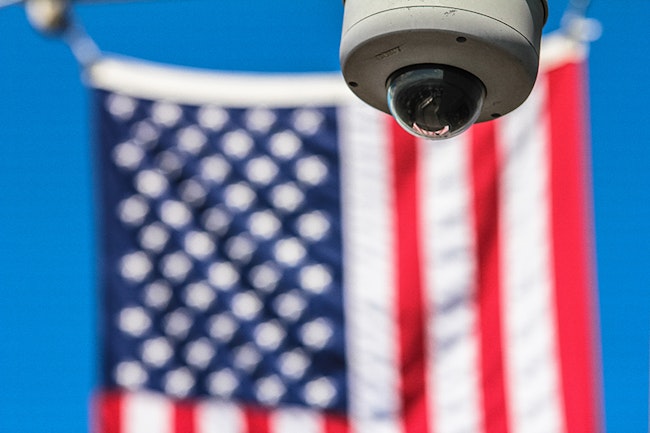
What Is Hardwired Security?
Answer: Hardwired security is wired directly into the home and uses electricity from the neighborhood's power grid system.
Hardwired security is the only type of security that must be installed by a professional installation team. In some homes, the existing wiring will be compatible with the system, creating an easy transition to the wired system. However, if the home has never had home security, the installation team may have to rewire the home's wired network. This process can be long, difficult, and expensive for the homeowner. The installation of wired alarms will depend on the home's existing wiring and the type of alarm system being installed. Here is a general overview of the installation process:
1. Set Up an Installation Appointment
The first thing you will need to do to install your wired alarm system is to set up an installation appointment with the wired alarm company. A team of electricians and security professionals will come to your home and install the system for you.
2. Set Up the Security Equipment
The homeowner will work with the installation team to determine the best places for the security devices. The security professional will do their best to explain the best locations for the various security devices. It's important to keep in mind that once a wired device is installed, it's difficult to rearrange its position. This means that you will need to think carefully about where the devices are being placed. For example, if you're planning on knocking out a wall in the house, tell the security professional so you can work around the wall.
3. Set Up Your Passcode
One of the best benefits of a wired system is that the system is installed for you. Because of this, you won't need to worry too much about the entire installation process. Besides giving your opinion and thoughts, you will get to sit back and relax while the installation team finishes the installment of the equipment. Once the devices are set up and ready to monitor your home, the team will help you set up a passcode and show you how each device works. In most situations, the security equipment should be ready to use before the installation team leaves your home.
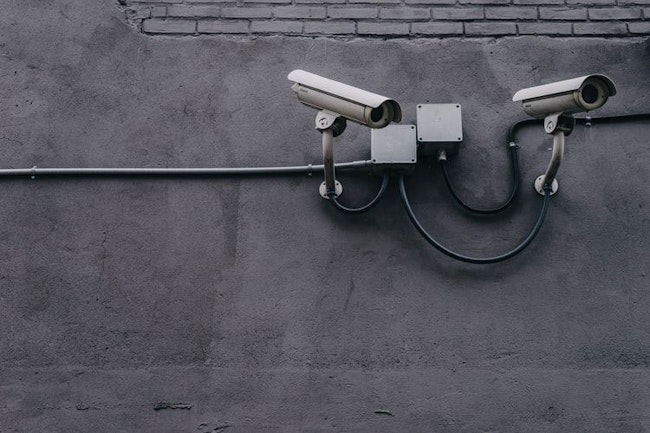
The Pros of a Wired Security System
No Batteries
Wired alarm systems (in most cases) don't rely on batteries, meaning that you won't need to change the batteries. The wired system should require no maintenance to keep the devices up and running successfully.
Professional Installation
The entire alarm system will be installed by a professional installation team, making the installation process efficient. Homeowners should pay close attention to the installation process to make sure that all of the devices are installed where they need to be.
Autonomous
Once your wired alarm system is installed in your home, there's not much you will need to do. When you leave the house, arm the system and when you arrive home, disarm the system. Your alarm company should take care of any triggered alarms.
The Cons of a Wired Security System
Vulnerable to Power Outages and Wire Cutting
Perhaps the most important disadvantage of a wired alarm system is that it is vulnerable to power outages. If the home's power is cut, the alarm system may lose all functions, leaving the house unprotected. The system's communication wires can also be cut, which will leave the system unable to contact emergency help.
Permanent
Many homeowners are concerned about the permanency of wired alarms. Wired alarms are meant to be permanent in the home, meaning that homeowners who are planning to move won't be able to take their wired alarm system with them. Additionally, homeowners planning to remodel their houses may face challenges as they work around the devices' placement.
Expensive
When combined with the installation fees, wired alarms systems are the most expensive type of alarm system. Because of their price, many homeowners tend to refer to another security type.
Wired alarm systems are best for those who prefer not to worry about their own protection. A wired system puts the user's protection in the hands of the security provider. If there are any issues, the security provider should be able to take care of it. Of course, security coverage will range from one company to another, and customers should make sure they understand their role before buying a wired alarm system.

What Is Cellular Security?
Answer: Cellular security connects to a cellular network to provide fool-proof, reliable security.
Cellular security is quickly becoming the most common type of security. Cellular security is completely wireless, making it easy to install and easy to move if the homeowner is moving houses or remodeling. The installation process for cellular alarms is also incredibly simple. Because every cellular system is different, the installation for each might be slightly different. For this section, we will explain how to install a Cove cellular security system. Because the alarm is wireless, most homeowners can install the system in less than 30 minutes.
1. Order the Alarm
Cove's alarm systems can be ordered entirely online, making the process easier for customers. The entire system is customized to fit the needs of the customer. Once the system has been created, the customer can change the order before purchasing it. The items will be shipped directly to the doorstep of the customer.
2. Unpackage the Alarms
Cove's alarm comes preinstalled with a cellular chip. However, some cellular companies might not include the chip, which means that the homeowner would need to buy a cellular chip for the main control panel and base station. For Cove users, they can skip a step and head straight to the unpacking and setup. Unpackage the alarms and make sure that you have each device that was ordered.
3. Sync the Alarms
Once the alarm is unpackaged, turn on the main alarm panel. The alarm panel should be ready to sync with the other devices in your system. Follow the alarm panel's directions, and the alarm panel should lead you through the installation process. If you have any questions while syncing the alarms, feel free to call a representative.
4. Place the Alarms
Once the alarms are synced, you can begin placing them around your home. Cove recommends placing a door sensor on every door leading outside and on every first-floor window. You can place your wireless security camera anywhere in your home since the camera can be moved from room to room. Once the alarms are placed, your alarm system is ready to go.

The Pros of a Cellular Security System
Fool-Proof
Cellular alarm systems are the most reliable type of alarm system. Because there are no wires, they can't be separated from their network. A cellular device connects to the cell tower, so as long as your cell phone is working, your alarm system should work perfectly.
Inexpensive
Because there are no installation fees, customers save money by using a cellular security system. Customers will receive a wireless camera, motion detection, remote monitoring, and professional monitoring for half the cost of a wired alarm system.
Flexible
Cellular alarm systems are the most flexible alarm system. They are wireless, meaning that each device can be relocated.
The Cons of a Cellular Security System
Changing Batteries
Cellular alarms use batteries, allowing them to operate autonomously even during a neighborhood blackout. However, this also means that the homeowner will need to replace the batteries in the devices every few months.
Needs a Cellular Network
In rural areas where cell reception is spotty or nonexistent, a cellular alarm system might not be effective. Cellular alarms are best in areas with strong cellular networks.
Limited Options
Because cellular alarm systems are fairly new to the market, customers have fewer options to choose from. There are only a handful of alarm companies that offer effective, reliable cellular protection.
As long as you live in an area with good cell reception, cellular alarm systems are considered the most reliable type of alarm system. Cellular alarms are durable and will continue working during a power outage or blackout, ensuring that the home is protected even at their most vulnerable. Additionally, cellular alarms are inexpensive, high quality, and provide the most comprehensive security. Most security professionals highly recommend cellular protection.
Some alarm companies offer security systems that are a hybrid between wifi alarms, wired alarms, and cellular alarms. Hybrid alarms have their benefits because they help to overcome the pitfalls of some of the other alarm types. For example, a wired alarm system with a cellular backup will use batteries to help protect the system from blackouts. However, a wired-cellular hybrid isn't created to run solely on battery, meaning that the system will run out of battery within a few days if the power doesn't turn back on. A wifi-cellular system has a similar benefit. If the wifi in the home stops working, the system will temporarily switch to the cellular counterpart to continue providing the home with security. Before choosing your alarm system, consider your needs and budget to determine which alarm security system is the best option for your family.
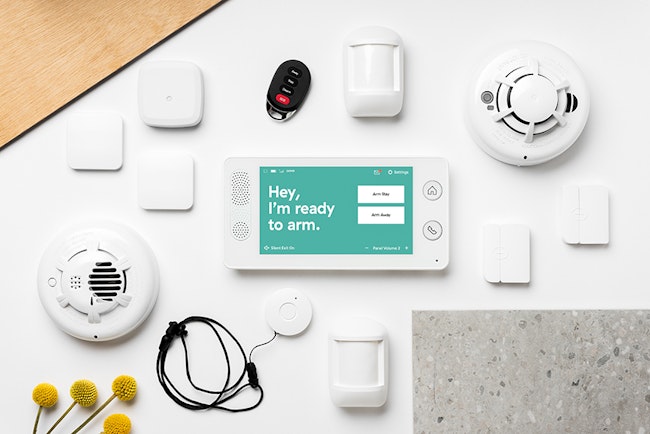
What Are the Best Wireless Security Devices?
Answer: Homeowners should install door and window sensors, indoor security cameras, and motion sensors to get the best protection in their homes.
If you've decided to use a wireless system, homeowners can choose between many wireless security devices. Some wireless devices can deter up to 80 percent of burglars, while others focus on bringing peace of mind to the family. In this section, we've created a list of common wireless devices to show the pros and cons of each wireless security device.
1. Door Sensor
One of the most common devices found in wireless security systems is the door sensor. Door sensors can be installed on every door leading to the outside. Doors sensors are easy to install, inexpensive, and effective. To install a wireless door sensor, simply secure one half of the door sensor to the door and the other half to the doorframe. When the door is closed, the two parts of the sensor should align, creating an electrical current between the two separate parts of the device. When the alarm is armed, the door sensor creates an alarm barrier that prevents intruders from getting inside.
According to a study done by UNC, "Most burglars would try to determine if an alarm was present before attempting a burglary. Among those that determined that an alarm was present after initiating a burglary, about half would discontinue the attempt." If a burglar attempts to enter the home without realizing that the home is protected and triggers the door alarm, most burglars will immediately leave the scene. Having door sensors provides your first (and most important) layer of protection against burglars.

2. Window Sensor
According to various studies and polls, 34 percent of burglars use the front door, 23 percent will break in through a first-floor window, 22 percent of burglars will enter through the back door, nine percent will use the garage door, four percent will enter through a basement door, and two percent will try to enter the home through a second-story window. These statistics show that protecting every door and window on the first floor of your home is vitally important. This is where window sensors come into play.
There are two main types of window sensors: window alarms and glass break detectors. A window alarm is a device similar to the door sensor. It comes in two parts; one half is installed on the window, and the other half is installed on the window frame. When the window is closed, the two parts should align and create an electrical current. If the window is opened while the device is armed, it triggers an alarm that will scare away the intruder. The glass break detector doesn't need to be installed directly on the window. Instead, it can be placed in the same room as the window and protect several windows simultaneously. The glass break detector listens for the frequency of glass breaking, which emits a specific high ringing sound. When a window shatters through force, the alarm picks up the sound of the breaking glass and triggers an alarm.
Having both types of window sensors is important in order to have a fully protected home. Every burglar responds differently, meaning that some will try to kick in the door while others will break the window. To avoid burglary, homeowners should prepare their homes for every possible situation.
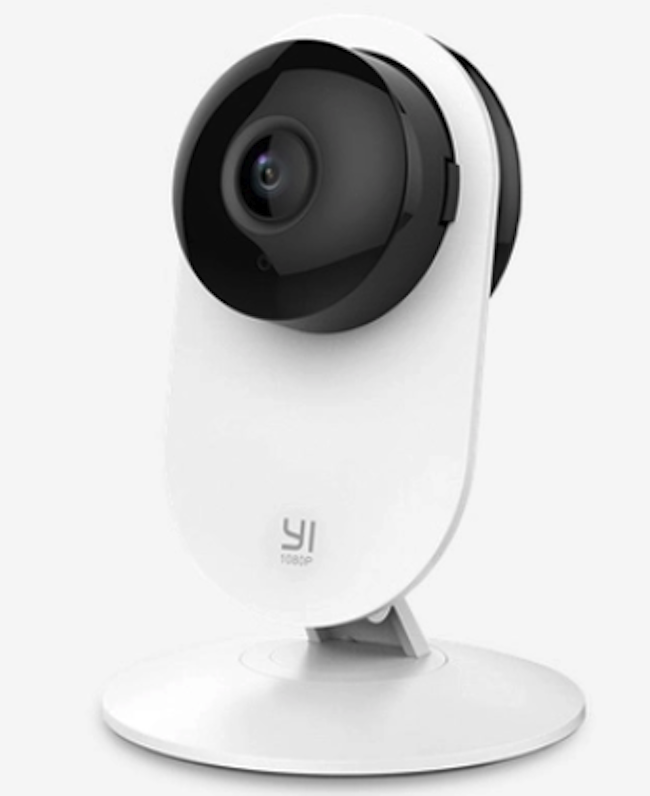
3. Wireless Security Camera
According to the FBI Crime Reports, only 13 percent of burglaries are solved each year. Often, police are faced with dead ends when they investigate burglaries because there is a lack of evidence. Having a home security camera can change the investigation and improve the odds of catching the burglar. Both indoor and outdoor security cameras can be useful; however, some controversy has arisen about the benefits of an outdoor security camera. A survey done by an Idaho new station, KTVB7, interviewed 86 convicted burglars. The survey asked the question, "If there was a security camera visible, would it keep you from breaking in?" Although most burglars responded that the camera has a deterrent, many others said that the camera signified something valuable inside the home. Outdoor cameras can be helpful, but they can also draw some burglars to the home, encouraging them to break into the home. Because of the possible risks associated with having an outdoor security camera, many homeowners opt to use only indoor security cameras.
The purpose of a security camera is to provide evidence of the burglary. Both indoor and outdoor cameras will serve this same purpose with equal effectiveness. Indoor cameras have shown to have greater benefits than outdoor cameras. Indoor cameras can serve in multiple capacities, while outdoor cameras are usually meant solely for security. An indoor camera can be used for indoor surveillance, recording evidence, monitoring mischievous indoor pets, watching over children and babysitters, and baby monitoring. Indoor cameras can be used through remote access, giving the homeowner endless access to their home. Not only do indoor cameras provide evidence in case of burglary, but they also provide reassurance to the homeowner.
The main thing to keep in mind when using a wireless camera instead of a wired camera is that the camera's batteries will need to be changed. If the camera records constantly, the batteries may fail quickly. To have longer-lasting batteries, consider using a camera that has motion detection. Motion detection cameras only begin recording when something moves in the frame or if the homeowner is accessing the camera live through their remote access app. However, if there's nothing to record because there is no movement within the camera's frame, the camera won't record, thus saving battery.
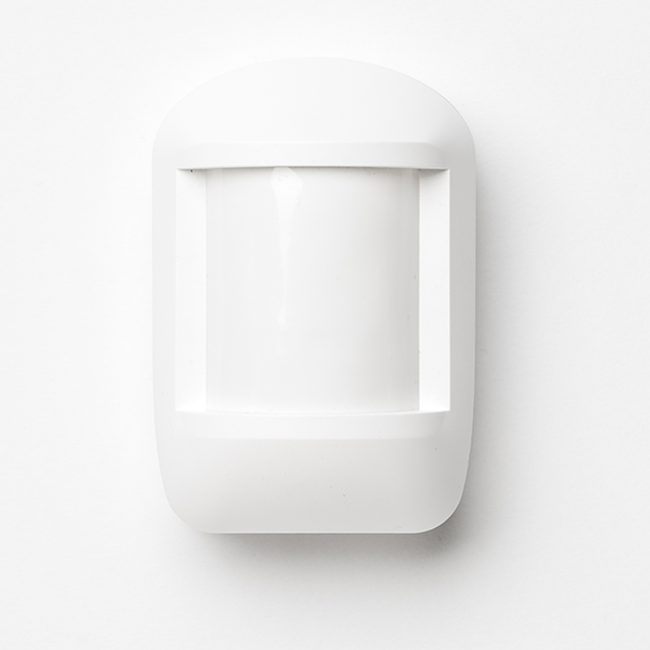
4. Motion Detector
Motion detectors are an easy wireless device that adds easy protection to your home. Most wireless motion sensors use PIR motion detection. PIR stands for "passive infrared," which is the most common type of motion detection for wireless alarm systems. PIR motion detection uses less energy because of the simple technology involved. Rather than sending out constant waves of electricity, which is how microwave motion sensors work, PIR sensors detect infrared radiation. Infrared radiation is a natural form of radiation emitted from living things. If the PIR sensor detects a high level of infrared radiation in one part of the room, the sensor knows that a person has entered the room. The sensor has a high sensitivity to infrared radiation and is extremely accurate. PIR motion sensors are accurate, inexpensive, easy to install, and require little to no upkeep.
Because motion detectors can trigger false alarms, it's important to avoid placing the detector is an area where environmental factors may trigger a false alarm. Homes that have large dogs such as Great Danes or Wolfhounds may experience false alarms since the dogs are the size of an adult human. Other triggers could include a sudden burst of heat in the room or direct white light aimed at the sensor. While using a wireless sensor, false alarms can be easily disarmed through the app on your phone.
5. Doorbell Camera
Some home alarm companies offer a doorbell camera. Doorbell cameras can be installed on the outside of the home and replace the doorbell. If a person approaches the door, the doorbell camera will turn on and begin recording the person at the door. This helps the homeowner to feel more at ease, ensuring that they have video evidence of each person who approaches the door. This can be helpful for some homes because many burglars will first attempt to break into the front door before moving to other entrances in the home.
However, doorbell cameras shouldn't be considered the main source of your home security. The purpose of a doorbell camera isn't to deter burglars. Instead, doorbell cameras give a sense of control to the homeowner. With a doorbell camera, homeowners can talk to those who approach their front door even when the homeowner is away. They can give directions to the delivery personnel and to anyone else who comes to the door while the homeowner is away. If a stranger approaches the door, and the homeowner doesn't want to answer it, the homeowner can simply respond by using the doorbell camera.
Most burglars who decide to burglarize a home with a doorbell camera will automatically avoid the front door and use an alternative entrance to the home (such as a window or back door). Because burglars won't often show themselves to the doorbell camera, homeowners shouldn't rely on a doorbell camera as their main source of protection.
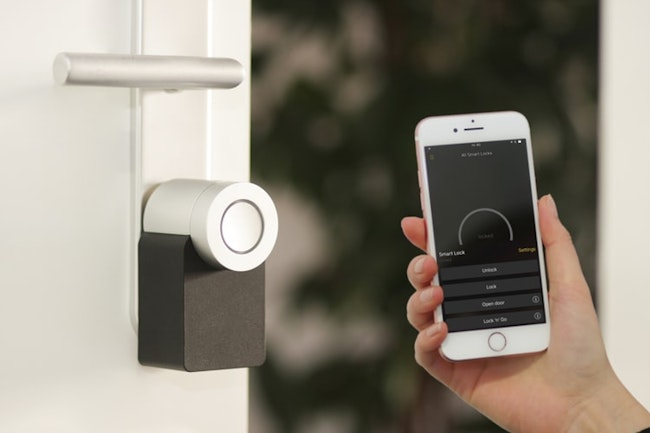
6. Smart Door Locks
A smart door lock can help families and homeowners who might forget to lock the doors to their homes. Some polls reveal that between seven percent and twenty percent of homeowners living in the United States forget to lock their doors. That number corresponds with how burglars enter homes since a majority of burglars gain entrance to homes by simply turning the front door handle and walking right inside. Burglars look for homes with unlocked doors, waiting to see which homes leave their doors unlocked before they pick their target. If you're forgetful with locking your doors, having a smart wireless door lock might be the best option for you.
A smart door lock works remotely, allowing the homeowner to lock and unlock their door without having to be in the home. Parents can unlock the door for their children without giving their children a key to the house. Parents can also double-check every time the door is unlocked to make sure that young kids aren't sneaking out of the house without their parent's permission. Smart door locks should always be paired with a door alarm to make sure the house has the best protection possible.
7. Other Safety Devices
Homeowners should consider installing other safety devices that will protect their home and family from other disasters. Some of the best wireless safety devices include smart fire alarms, smart carbon monoxide sensors, flood alerts, and medical alert systems. These wireless devices help maintain security and safety in the home from threats other than intruders. Homeowners should focus on holistic protection, ensuring that they have protection from anything that could threaten their loved ones' safety.
Ready to get started?
Take this short quiz to build your customized system today!
Takes less than a minute
